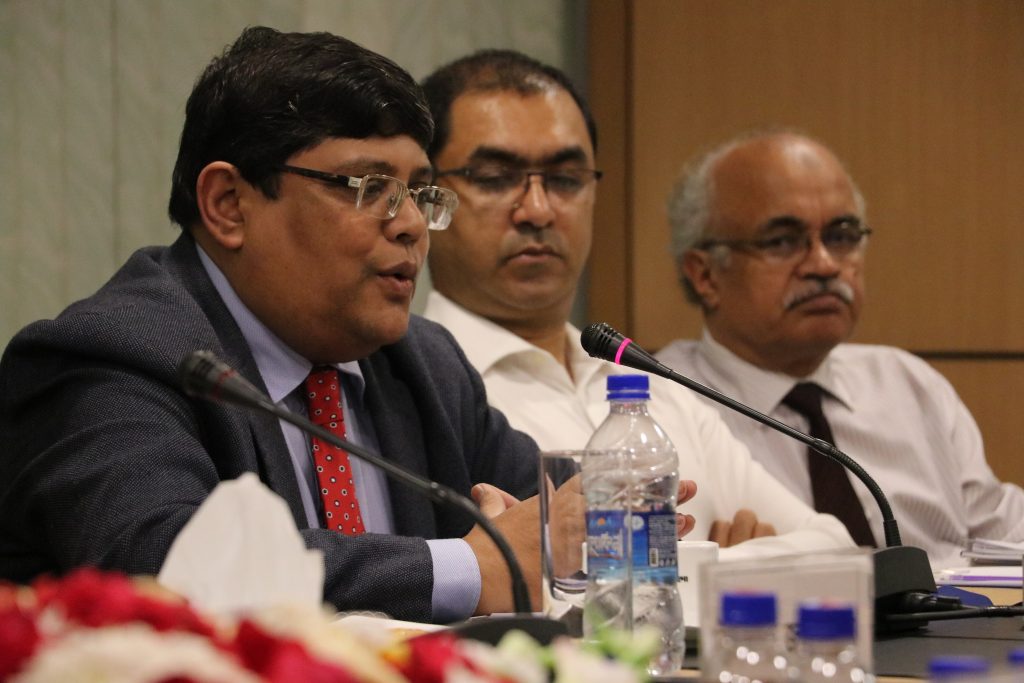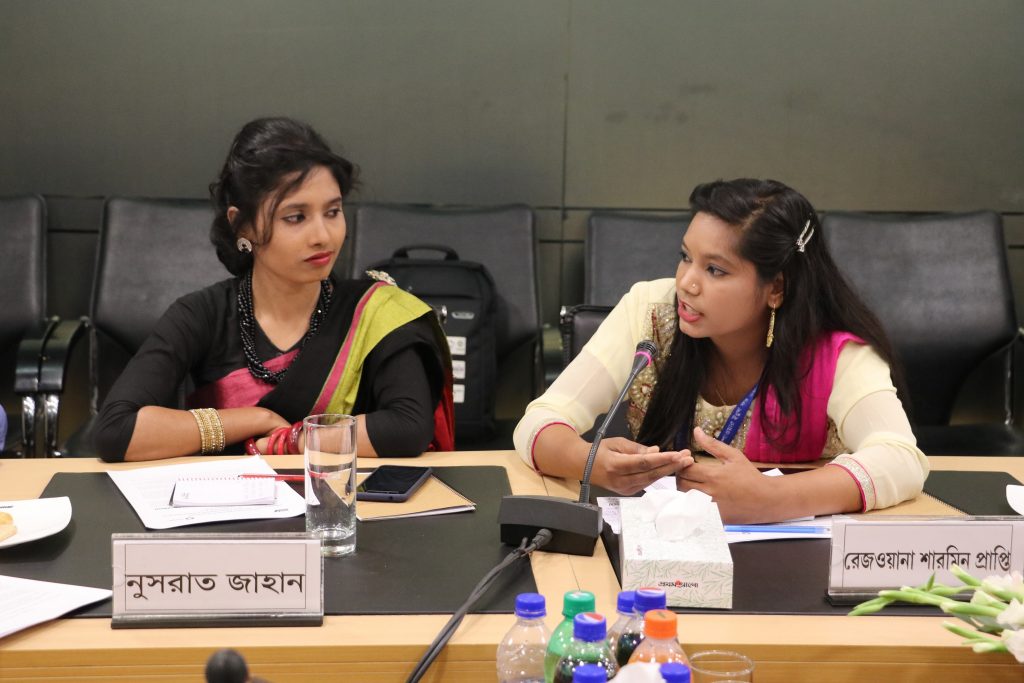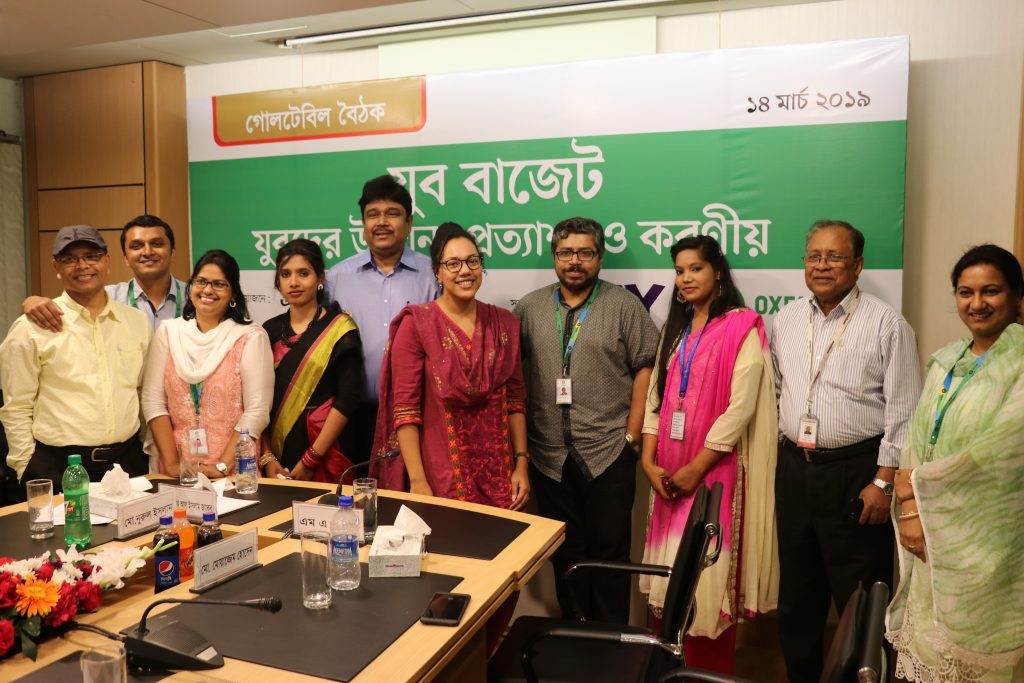Roundtable meeting: calling for more budget support for youth
Young people make up 33% of the total population of Bangladesh – so why is only 0.27% of the national budget allocated to youth? This was one of the questions raised at a high-level roundtable discussion organized by Oxfam in partnership with a national newspaper.
In March 2019, Oxfam in Bangladesh and the Prothom Alo, a major Bangladeshi newspaper, organized a roundtable meeting in Dhaka, to raise concerns about budget allocation – or rather the lack of it – to develop the skills of the country’s young people.
Representatives from various government and non-government youth organizations and youth entrepreneurs attended the roundtable discussion, named ‘Youth budget: Development, aspirations and responsibilities for the youth’, which was conducted by Sohrab Hossein, Associate Editor of Prothom Alo. Speakers pointed out that although skills development is emphasized at the national level, hardly any budget is dedicated to it and there is little coordination among the ministries to implement it.


Participants also highlighted the need for youth to be consulted in the budget formulation. Some made the point that young people are not even aware of the limited budget that has been allocated for their development, and have no opportunity to influence how it is spent. Members of Oxfam EYW youth groups raised the issue that rural young people are not involved in youth budgeting by the union parishads (the smallest rural administrative and local government units in Bangladesh).
SM Monjur Rashid, Oxfam Bangladesh Policy, Advocacy and Campaigns Manager, spoke of the impact of deteriorating values and drug use, saying that these have become major issues among young people and that they can’t be overlooked when planning for youth. He also recommended that the budget includes opportunities for youths from ethnic minorities, allowing for a special focus on their individual culture and language.
Participants reflected on the limited opportunities for Bangladesh’s young people to join an international workforce, due to a lack of high-quality training for jobs overseas and the absence of internationally recognized certification. Women who go abroad to work are mainly employed as housemaids, when the market should be broader, covering other jobs and industries. Nurun Islam, Director of the Bureau of Manpower Employment and Training (BMET), informed the roundtable that an arrangement for international certification from different foreign organizations is currently being developed.
Acknowledging the importance of bringing youth into the mainstream development process, planning minister MA Mannan said that the government would increase the allocation for youth in the next budget. This was a very welcome commitment, and both Oxfam and Prothom Alo will watch what happens, and will continue to push for budgeting in Bangladesh that both involves and invests in the nation’s youth.

